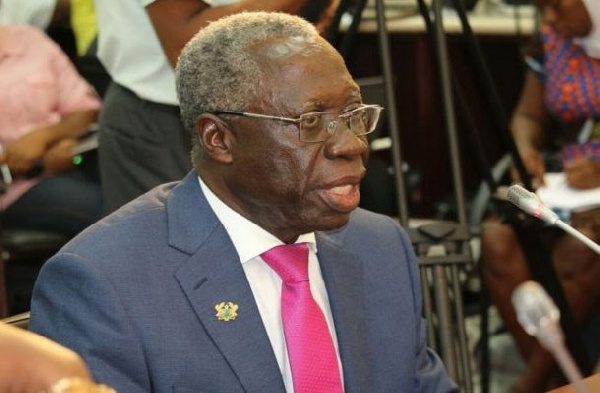This is the kind of historical illiteracy you get when you represent and teach Gold Coast Colony history as Gold Coast/Ghana history.
If Ashanti chiefs, and Ashanti elites generally, did not feel compelled to join E/R chiefs in their fight for their independence, it was because, as far as Asante was concerned, that wasn't their fight.
When Ashanti was fighting for its own self-government, they were not joined by E/R chiefs. That independence or internal self-government for Asante was achieved when finally the British assented to the restoration of the Asante Confederacy (and Confederacy Council) in 1935.
Restoration of the Asante Confederacy (that is, of Asante as a unit under the headship of the Asantehene-in-Council) had been the primary goal and demand of Asante since the return of Prempeh I.
That goal, which came with internal self-government for Asante, was realized finally under Prempeh II.
What business then did Asante have to fight with E/R chiefs for the latter's subsequent independence when they had already fought to achieve theirs.
If Asante had not been joined with the Gold Coast Colony after the Second World War (under the Burns Constitution), it likely would have remained independent and separate from the Gold Coast Colony up until 1957. And perhaps the question of Ashanti joining the Gold Coast Colony to become one at independence in 1957 might have been resolved by a referendum in Asante, just as was done with Trans-Volta Togoland.
So, this notion that Ashanti did not fight for independence with the Gold Coast Colony chiefs simply betrays a lack of understanding of the nuances of Gold Coast/Ghana history.
There is a reason why the post-Second World War struggle for internal self-government of the Gold Coast did not initially interest a lot of Asante chiefs and elites- they already had achieved their goal of internal self-government before the Second World War.
Ashanti participation in the Gold Coast independence struggle increased sharply with the coming of the Coussey Constitution and the holding, for the first time, of elections in the entire Gold Coast territory (the Colony, Asante, and Northern Territories) to elect members to a unitary national assembly.
That is when the Gold Coast began its real struggle for independence as one unit. And when that time came, most young Asante politicians (including RR Amponsah and Victor Owusu) initially joined the CPP.
If you don't count any Asante, Northern, or Voltarian elite in the Big Six, it was because the 1948 Riots was largely a Gold Coast Colony Colony palaver, and especially an Accra-centered one.
If you weren't in Accra, you weren't likely to have been arrested. And in any case, what kind of historiography reckons a nation's historical founders on the basis of the arrest record of the colonial police in relation to one specific event?
So if you evaded arrest that day, as Nii Kwabena Bonney and many others more involved in the 1948 Riots did that week, and therefore did not make newspaper headlines as one of the "Big Six" that means you, or your people, didn't fight for independence as much as the arrested six did? That view cannot be taken seriously!
Perhaps a more interesting historical inquiry is how E/R chiefs, not being signatories to the Bond of 1844 and not having fought a war against the British, ended up a part of the Gold Coast Colony, thereby necessitating their having to fight at a later date for their independence.
If you submit yourself willingly to be colonised by an European power (as well as aid the colonizer to colonize other territories, notably Asante), why should you expect those who resisted their colonization by force--and without your help--and who fought for a restoration of their self-government, to bother themselves with your own subsequent fight for your independence?
These are the rich nuances of Ghanaian colonial history that we don't teach. The version of history we teach as Ghana/Gold Coast history is mostly just a little slice of Gold Coast Colony history minus any critical analytical perspective.
Latest Stories
-
Former Deputy Minister calls for accountability and judicious use of state resources
22 minutes -
Prof Bokpin backs the IMF call to BoG to reduce their FX interventions
35 minutes -
Insurance industry players create awareness through “Insurtainment” games
35 minutes -
NSA boss sounds alarm on the state of facilities, calls for patience from Ghanaians
37 minutes -
Rotary Club of Accra Ridge unveils plans to boost mental health awareness and community development
47 minutes -
The United States and Israel will make new attempts to attack Iran
50 minutes -
New U.S. Visa Rules: Most Ghanaians now limited to single-entry, 3-month visas
52 minutes -
Women farmers at Savelugu, Nanton engaged on government’s agricultural policies
53 minutes -
Onesta Ghana launches Redgold Palm Oil project to boost local production and cut imports
57 minutes -
NDC’s ‘1-3-3’ job promise missing from policy document – Miracles Aboagye Claims
57 minutes -
Two arrested over alleged attempted robbery
57 minutes -
Unichem Group and LUEX Healthcare UK premier legacy documentary, ‘All together now’
1 hour -
Keeping it agile in Ghana – how top tech is transforming modern work
1 hour -
Joining Randers was the perfect opportunity to show my talent – Mohammed Fuseini
1 hour -
Global leaders underscore child protection as foundation of resilient families at SFC 2025
1 hour

